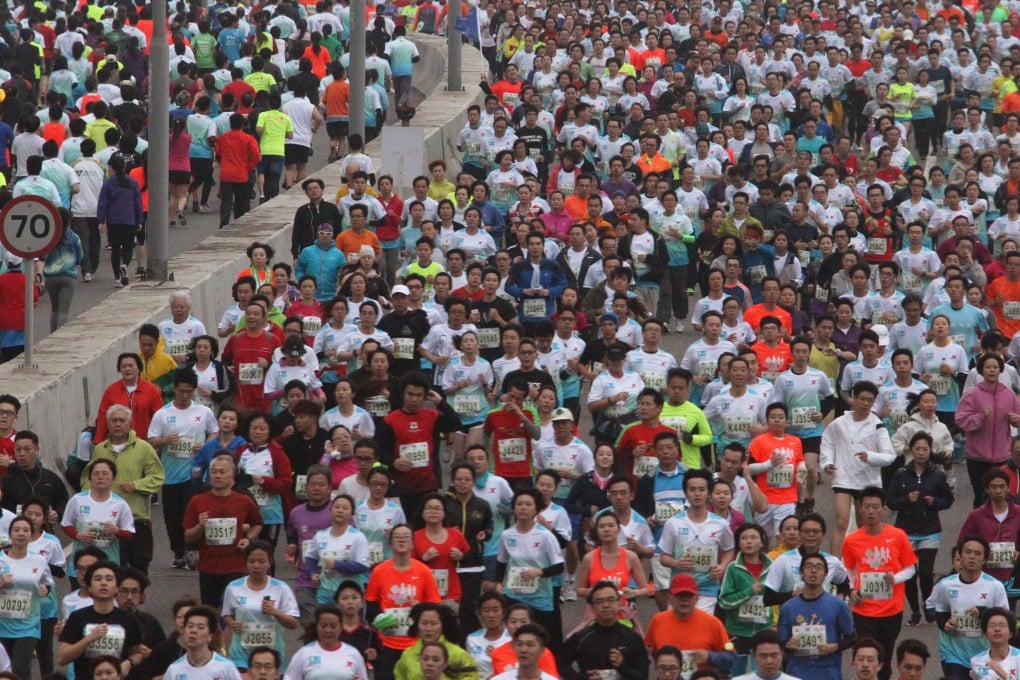How bank chief's 'baby' - the Hong Kong Marathon - grew into a giant
Benjamin Hung's 'baby' has matured and he looks forward to the day when the city can claim the most prestigious street race in Asia

Like any proud father, Benjamin Hung Pi-cheng is effusive about his "baby", when he slips "derivative" into the conversation. The banking jargon might be common in his office on the 32nd floor of Standard Chartered's headquarters in Central, but in the context of the Hong Kong Marathon, it is met with laughter.
He laughs too and then finds another word more fitting - "offshoot" - as he tries to explain the phenomenon of the Hong Kong Marathon and outlines his hopes, aspirations and dreams for the next decade and more.
Did we think with confidence that the people of Hong Kong would pull on shorts and sneakers and run around the streets? I was a sceptic
Sitting in that same office 20 years earlier, Hung and other StanChart chiefs did something bankers rarely do - took a gamble - and invested in a marathon race.
Not just a one-off throw of the dice, but a 10-year investment.
Hung, the only local Chinese in the room, was the sceptical, reluctant one, arguing that Hongkongers' love of sport ended at horse racing and mahjong.
